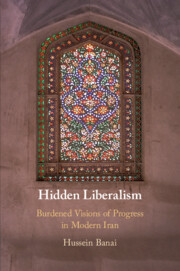4 - Liberation without Liberalism
Published online by Cambridge University Press: 26 November 2020
Summary
This chapter explores the implications stemming from the advent of the Islamic Republic for liberal-thought practices inside Iran. Specifically, it seeks to clarify the differences between liberal objections to all varieties of religious governance and Islamic modernist-cum-reformist efforts to reconcile monistic doctrines with pluralistic realities. The latter cohort’s appropriation of some aspects of liberal thinking – by the Liberation Movement of Iran (LMI) in 1970-80 and by religious reformists after the election of Mohammad Khatami in 1997 – has obscured significant substantive differences between these visions, allowing for incoherent labels such as “Islamic liberalism”. Efforts to make the Islamic Republic more democratic or to advance a pluralistic vision of political Islam, however much progressive in the context of their times and political possibilities, nonetheless are substantially different in depth and scope from liberal-constitutional principles and visions of progress championed by advocates of political liberalism around the globe and inside Iran. Curiously, these differences have largely been downplayed, if not altogether overlooked, in political studies of post-revolutionary Islamic modernism and reformist thought. This chapter examines these differences and offers an explanation for their combined impact on liberal political thought in contemporary Iranian intellectual discourses.
Keywords
- Type
- Chapter
- Information
- Hidden LiberalismBurdened Visions of Progress in Modern Iran, pp. 102 - 141Publisher: Cambridge University PressPrint publication year: 2020



